Discover the world of building and construction in NSW with our comprehensive guide. Gain a clear understanding of the construction sector, current trends, and licencing requirements. Develop essential skills through education programs and apprenticeships while mastering building codes and standards. Navigate the path to builder certification by understanding different classes, meeting criteria, and preparing for examinations. Establish your builder business by focusing on business planning, legal compliance, insurance, and effective marketing strategies. Lastly, foster continued professional growth through staying updated with industry changes, networking, and seeking additional certifications. Embark on a journey of success and excellence in the building and construction industry.
Understanding the Building Industry in NSW
Overview of the Construction Sector
When it comes to the building industry in NSW, it’s essential to have a clear understanding of the construction sector and its various aspects. From residential projects to commercial developments, the construction sector encompasses a wide range of activities that contribute to the growth and development of the state. As an aspiring builder or someone interested in the field, familiarising yourself with the construction sector will provide you with a solid foundation to embark on your journey.
Current Trends and Opportunities in NSW
To stay ahead in the ever-evolving building industry, it’s crucial to be aware of the current trends and opportunities in NSW. The construction landscape is constantly changing, influenced by factors such as technological advancements, sustainability initiatives, and urban development projects. By keeping an eye on the latest trends, you can position yourself to seize emerging opportunities and align your skills and expertise accordingly. Whether it’s the rising demand for eco-friendly building solutions or the integration of smart technologies, staying informed will give you a competitive edge.
Licencing and Regulatory Requirements
Navigating the licencing and regulatory frameworks is an essential aspect of the building industry in NSW. Obtaining the necessary licences and certifications is not only a legal requirement but also a testament to your professionalism and credibility. Understanding the specific licencing requirements in NSW and ensuring compliance with the relevant regulations will enable you to operate within the industry confidently. From knowing the qualifications needed for a building licence Victoria to exploring the benefits of completing building and construction courses or a waterproofing course, being well-versed in licencing and regulatory requirements is paramount for your success.
💡KEY TAKEAWAY: By gaining a comprehensive understanding of the construction sector, staying updated on current trends and opportunities, and ensuring compliance with licencing and regulatory requirements, you can lay a solid foundation for your journey in the building industry in NSW.
Developing Essential Skills and Knowledge
Building and Construction Education Programs
When it comes to building and construction, acquiring the right skills and knowledge is essential to excelling in the field. Building and construction education programs offer a structured and comprehensive approach to learning, equipping you with the foundational understanding required to navigate the industry successfully. These programs cover a wide range of topics, from construction techniques and project management to building codes and safety regulations. By enrolling in reputable educational programs, you can gain the necessary theoretical knowledge that forms the bedrock of your professional journey.
. Gaining Practical Experience and Apprenticeships
In addition to formal education, gaining practical experience through apprenticeships is a vital step in your development as a building and construction professional. Apprenticeships provide hands-on training and mentorship, allowing you to apply the knowledge gained in educational programs to real-world scenarios. Through practical experience, you’ll learn the intricacies of construction processes, develop technical skills, and understand the nuances of different trades. This firsthand experience not only enhances your practical expertise but also hones your problem-solving abilities and decision-making skills, preparing you for the challenges that lie ahead.
Building Codes and Standards Knowledge
To ensure compliance and maintain high quality and safety standards, a thorough understanding of building codes and standards is indispensable in the building and construction industry. Familiarising yourself with the relevant regulations and requirements will help you navigate the complex web of codes, ensuring that your projects meet the necessary legal and safety criteria. Building codes cover various aspects, including structural integrity, fire safety, accessibility, and energy efficiency. Staying updated with the latest codes and standards ensures that your work aligns with industry best practices and fosters trust with clients and stakeholders.
💡KEY TAKEAWAY: Developing essential skills and knowledge in the building and construction industry involves a combination of formal education, practical experience, and an understanding of building codes and standards. By enrolling in reputable education programs, gaining practical experience through apprenticeships, and staying informed about building codes, you can lay a strong foundation for a successful career in this dynamic field.
Navigating the Path to Builder Certification
Understanding the Different Builder Classes
To embark on the path to builder certification, it is crucial to understand the different builder classes that exist within the industry. Builder classes are categorised based on the scope and complexity of projects they are authorised to undertake. Typically, there are multiple classes, ranging from low-rise residential builders to unlimited builders capable of handling large-scale commercial projects. Each class has its own set of requirements and limitations. By familiarising yourself with the distinctions between these classes, you can determine the specific certification path that aligns with your goals and aspirations.
Meeting the Experience and Qualification Criteria
Achieving builder certification necessitates meeting certain experience and qualification criteria. These criteria may include a minimum number of years of industry experience, the completion of specific building and construction courses, and the acquisition of relevant licences or certifications. It is essential to meticulously review the criteria set forth by the regulatory bodies responsible for builder certification in your region. By ensuring that you meet these requirements, you can proceed confidently in your journey towards certification.
Application Process and Examination Preparation
Once you have assessed the builder class that suits your objectives and fulfilled the necessary experience and qualification criteria, the next step is to navigate the application process. This typically involves submitting the required documentation, such as evidence of experience, qualifications, and any supporting materials. It is crucial to carefully follow the instructions provided by the certification body to ensure a smooth application process.
In preparation for the examination, it is advisable to engage in a thorough study and review of the relevant subject matter. Familiarise yourself with the key concepts, regulations, and industry best practices that pertain to your desired builder class. Consider utilising study materials, practice exams, and participating in exam preparation courses to enhance your chances of success.
💡KEY TAKEAWAY: When navigating the path to builder certification, understanding the different builder classes, meeting experience and qualification criteria, and preparing for the application process and examination are crucial steps. By comprehending the distinctions between builder classes, fulfilling the necessary criteria, and adequately preparing for the examination, you can work towards obtaining the desired builder certification.
Establishing Your Builder Business
Business Planning and Structure
When it comes to establishing your builder business, thorough business planning and defining a solid structure are vital. Begin by developing a comprehensive business plan that outlines your goals, objectives, target market, and strategies for success. Consider factors such as your niche specialisation, competitive landscape, and pricing strategies. A well-crafted business plan serves as a roadmap, guiding your decisions and actions as you navigate the exciting journey of building your business.
Legal and Insurance Considerations
Navigating the legal and insurance aspects is crucial for the smooth operation of your building business. Familiarise yourself with the legal requirements and regulations specific to your region. This includes obtaining the necessary licences and permits, as well as establishing the appropriate legal structure for your business, such as a sole proprietorship, partnership, or limited liability company (LLC). Additionally, acquiring adequate insurance coverage, such as general liability insurance and professional indemnity insurance, safeguards your business against potential risks and liabilities.
Marketing and Building a Client Base
Effective marketing strategies play a pivotal role in building a client base for your builder’s business. Develop a comprehensive marketing plan that encompasses both online and offline channels. Utilise digital platforms, such as a professional website, social media profiles, and online directories, to showcase your expertise and attract potential clients. Engage in networking events, industry conferences, and local community initiatives to establish meaningful connections and expand your professional network. Leveraging positive client testimonials and referrals can also contribute significantly to building trust and credibility.
💡KEY TAKEAWAY: Establishing your builder business requires careful consideration of business planning and structure, legal and insurance considerations, and strategic marketing efforts. By developing a comprehensive business plan, adhering to legal requirements, and implementing effective marketing strategies, you can lay a strong foundation for your builder’s business and attract a loyal client base.
Continued Professional Growth and Development
Staying Updated with Industry Changes and Innovations
In the dynamic world of building and construction, staying updated with industry changes and innovations is crucial for your continued professional growth. Make it a habit to immerse yourself in industry publications, websites, and forums to stay abreast of the latest trends, technologies, and best practices. Attend conferences, seminars, and workshops to expand your knowledge and gain insights from industry experts. Embracing lifelong learning and remaining open to new ideas and advancements will not only keep you at the forefront of your field but also provide you with a competitive edge.
Networking and Building Professional Relationships
Networking and building professional relationships are essential components of your career development. Engage with like-minded professionals through industry associations, trade shows, and networking events. Seek opportunities to collaborate on projects or participate in committees and working groups. By fostering these relationships, you can exchange ideas, learn from one another, and potentially unlock new business opportunities. Remember, your network is your net worth in the building and construction industry.
Seeking Additional Certifications and Specialisations
To enhance your professional credentials and explore new avenues in the building and construction fields, consider pursuing additional certifications and specialisations. Research relevant certification programs that align with your career goals and invest in acquiring new skills and knowledge. Specialising in niche areas, such as green building practices or sustainable design, can set you apart and attract clients who value expertise in those areas. Continuing education and professional development are instrumental in positioning yourself as a trusted and well-rounded professional.
💡KEY TAKEAWAY: Continued professional growth and development in the building and construction industry require staying updated with industry changes and innovations, networking and building professional relationships, and seeking additional certifications and specialisations. By staying informed, connecting with industry peers, and investing in your professional education, you can continuously expand your knowledge, skills, and opportunities for advancement in the field.
Everthought is dedicated to helping you achieve your full potential in the construction and building industry. Through state-of-the-art facilities and expert instructors, our comprehensive programs provide you with the knowledge, skills, and practical experience you need to succeed as a builder.












